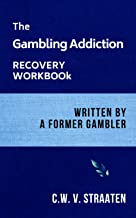Gambling Disorder
Gambling disorder involves repeated problematic gambling behavior that causes significant problems or distress. It is also called gambling addiction or compulsive gambling.
Cluster Number:
Wiki Number: W087
Diagnosis: Gambling Disorder-Problem Gambling
US Patients: 6/10 of 1%
World Patients:
Sex Ratio: M+;W
Age Onset:
Brain Area: lower level of norepinephrine, which is secreted during gambling stress and thrills; less serotonin or opioids
Symptoms: Gambler uses increasing amounts of money, from others, preoccupied, done often when distressed to “make up losses”
Progression: with lying, losing significant relationships and opportunities, is irritable and refuses to quit, may have substance abuse
Causes: impulsivity, seeking to activivate brain reward systems so defined as addiction, vs. OCD based on brain’s fear mechanisms
Medications: antidepressants in Britain, but not approved in the US by the FDA; lithium
Therapies: “Gamblers’ Anonymous”; CBT-metacognitive training; self-excluson-enforced by face-recognition cameras in casinos
Youtube Video: 10 Signs You Are Addicted to Gambling:
Stop Casino and Online Gambling
Amazon or Library Book:
The Gambling Addiction Recovery Workbook
Click the book to link or buy from Amazon.

